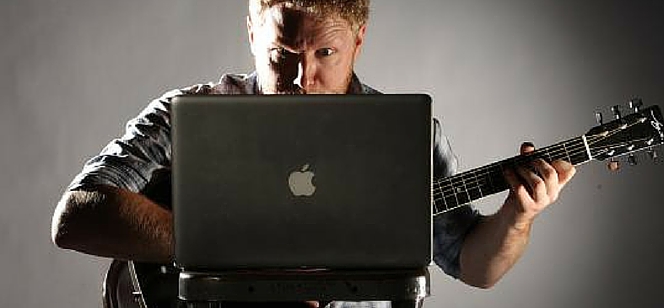3 top tips to becoming a pro when learning your instrument
It’s a long road to becoming a master of your instrument but the journey is worth it. Here’s some tips on getting there faster.
Whether you’re picking up an instrument for the first time or if you’ve been playing for decades, there is always more to learn in music. It’s a steep mountain to climb and many give up in their first few steps, but once you get over the first peak its somewhere no-one returns from.
The joy of playing and making music is unmatched. Getting to a point where you know what you’re doing with it can be hard but these simple tips will help you get well on the way to mastering your instrument(s) of choice.
Practice Everyday
Commitment is the most important when it comes to learning anything – especially learning to play music. Practising every day is the single best thing you can do to learn an instrument and will give a rocket boost to the speed at which it becomes second nature.
Aiming for half an hour to an hour of practice each day will ensure that each technique, scale, and movement becomes cemented in your mind. But even if you only find a quick 10 minutes to sit down with it, that’s a vast improvement on not practising at all that day.
You will still need to find the right lessons, books, practice routines to make it worth it but making sure that you do whatever your learning process is every day will bolster your skills.
Personal Story Time: I was learning guitar in school when a boy joined who had never played before. He practised every day after first picking up a guitar and 6 months later was playing Slash solos note for note and performing improvised shreds at local venues all around.
Learn Music Theory
Theory is the science behind music, it’s the understanding of why certain notes sound good together, why you can’t just go note to note and scales exist, how harmony works. Learning music theory gives you the power to play with freedom as you know what you’re doing and how it works.
Theory allows you to jam along with other musicians, it’s a vital tool in writing your own music, and it even helps you translate your knowledge of music from instrument to instrument.
Whilst plenty of amazing musicians completely forgo learning theory, most people who can play an instrument professionally will tell you the importance of it. Some say it takes away the personality, but understanding the guidelines just helps you to break them in your own way even better.
Personal Story Time: I learned guitar with teachers for about 8 years without progressing beyond learning a few chords and plucking a couple of notes. Deciding to teach myself and in particular teach myself theory, that my teachers for some reason hadn’t, helped me to learn more in 1 year than I had in 8. (That’s not to say music teachers aren’t very valuable for lots of people)
Play With Other People
The solo musician approach works for a lot of musicians, but when it comes to learning how to play it is incredibly important to play with other players unless you’re planning on only playing Oasis covers all your life – Tip: that won’t win you fans.
Playing with other musicians introduces you to playing along to music which is vital for learning timings and how to fit your own style of playing into other styles. Jamming is one of the best ways to progress, it’s how a lot of the greatest bands come up with their best songs.
Best of all, it’s fun! Music is a cathartic joy at the best of times, but finding your groove with other musicians is unparalleled.
Personal Story Time: I couldn’t play in front of people for a long time. I was a bedroom guitarist until I started playing music with other people. Within a few months of jamming with friends I was in bands and playing in venues in front of audiences.
Do you have any of your own tips that will kick-start your road to pro playing? Let us know in the comments below!
